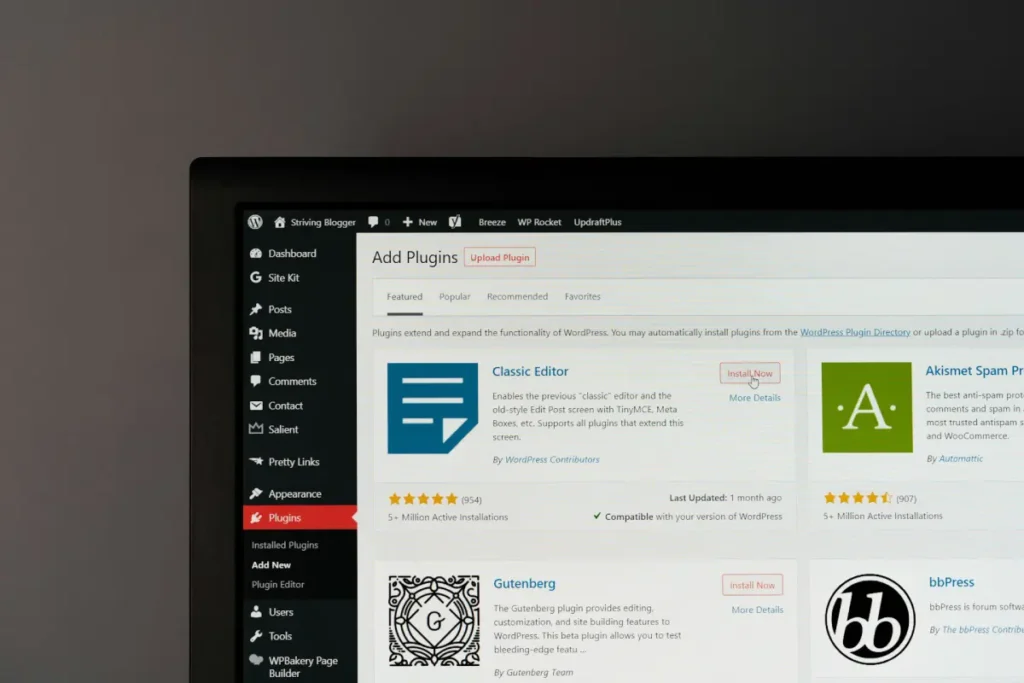Have you ever wondered why, despite the rise of many new website platforms, WordPress continues to dominate the market? Over 40% of all the websites in the world are based on WordPress, and the platform’s continuing popularity cannot be ignored.
Whether you’re a blogger, a business owner, or a web developer, WordPress offers something for everyone. But what keeps this platform ahead of the curve, even as newer and shinier options appear?
Let’s dive into why WordPress remains the top choice for a content management system (CMS) and what makes it stand out from the crowd.
A Brief History of WordPress and Its Evolution
WordPress began its journey in 2003, founded by Matt Mullenweg and Mike Little as a straightforward blogging platform. The goal was to democratize online publishing and make it accessible to everyone, even those without coding skills.
Over time, it transformed from an easy running blog device right into a comprehensive content management system (CMS).

Today, WordPress powers a diverse range of websites, including e-commerce stores, portfolio sites, and news portals, thanks to its adaptable nature and broad functionality.
The introduction of the Gutenberg editor in 2018 was a big step forward for WordPress. It made content creation easier by using a visual, block-based system, similar to popular page builders like Elementor.
Now, WordPress is much more than just a blogging tool; it’s a flexible platform that can be used to create almost any kind of website.
The Main Advantages of WordPress
What exactly makes WordPress so special? Let’s break down the key factors that contribute to its ongoing success :
1. Ease of Use
When it comes to managing a website, user-friendliness is a must. With WordPress, setting up a site can be done in just a few clicks. Its intuitive dashboard allows even beginners to quickly grasp how to create posts, upload images, and install plugins.
According to a survey conducted by W3Techs, WordPress is considered the easiest CMS to learn and manage, especially compared to more complex systems like Drupal .
2. Flexibility and Customization
Every website has different needs, and WordPress delivers with a vast selection of over 60,000 plugins and countless themes.

Want to create an online store? Plugins like WooCommerce make that possible. Looking for a sleek portfolio design? There are many designs dedicated to this.
The open-source nature of WordPress also means that developers can create custom solutions without being restricted by the platform’s original functionalities. “Open-source means more innovation and faster improvements,” says Matt Mullenweg, one of the founders of WordPress.
3. A Large and Active Community
One of the reasons why WordPress remains strong is its massive community of developers, designers, and users who contribute to the ecosystem. This active community results in constant updates, new plugins, and security enhancements.
There are countless tutorials, forums, and social media groups where users can find support, making troubleshooting and learning much easier.
4. SEO-Friendly
In the competitive world of digital marketing, having a solid search engine optimization (SEO) strategy is crucial for any website’s success.

WordPress makes this easier by offering built-in SEO capabilities and supporting popular plugins such as Yoast SEO and Rank Math, which help users fine-tune their content to boost search engine visibility.
As digital marketing expert Neil Patel points out, WordPress’s SEO-friendly nature is rooted in its design, making it a go-to platform for improving online presence from the start.
WordPress vs. Other CMS Platforms
WordPress isn’t the only CMS out there, so how does it compare to its competitors?
WordPress vs. Joomla and Drupal
Joomla and Drupal offer more control with advanced customization options, but have a steeper learning curve and require more technical knowledge.
WordPress, on the other hand, provides a good balance between flexibility and ease of use, allowing users to build complex sites without needing to dive deeply into code. As web developer Chris Coyier notes, “WordPress simplifies complex tasks, allowing you to focus on building rather than coding.”
WordPress vs. Modern Platforms (Wix, Webflow, etc.)
Platforms like Wix and Webflow have gained popularity due to their drag-and-drop interfaces. However, they are not as extensible as WordPress.
WordPress offers you complete ownership of your website and the freedom to customize it fully.
You have full ownership of your website’s content and data, which is not always the case with “website builders” that often limit customization beyond their built-in tools. With WordPress, you’re not tied down to proprietary systems

Staying Updated with the Latest Technology
WordPress continuously evolves to keep up with new technologies and industry trends. The introduction of headless CMS capabilities allows developers to use WordPress as a content backend while employing modern front-end frameworks like React or Vue.js.
Additionally, WordPress’s REST API integration enables easy connection with other platforms and services, making it adaptable to a variety of use cases.
Conclusion
WordPress’s long-standing success is not just a matter of legacy but a testament to its adaptability, community-driven development, and dedication to user needs.
Whether you’re a novice blogger or a seasoned developer, the platform’s blend of usability and flexibility makes it the best choice for a wide range of projects.
If you haven’t yet explored WordPress, now might be the perfect time to give it a shot—or to revisit it with a fresh perspective.
